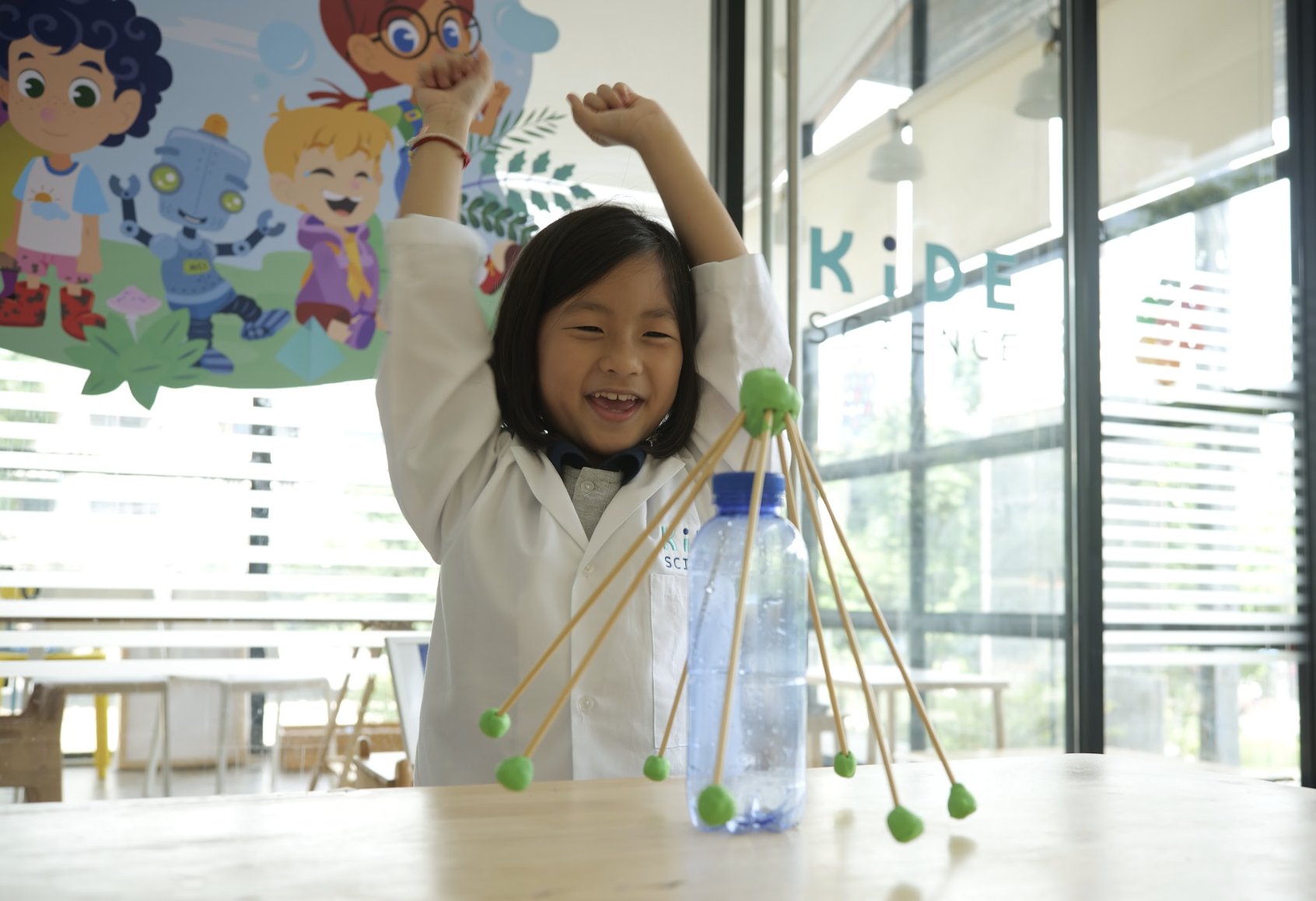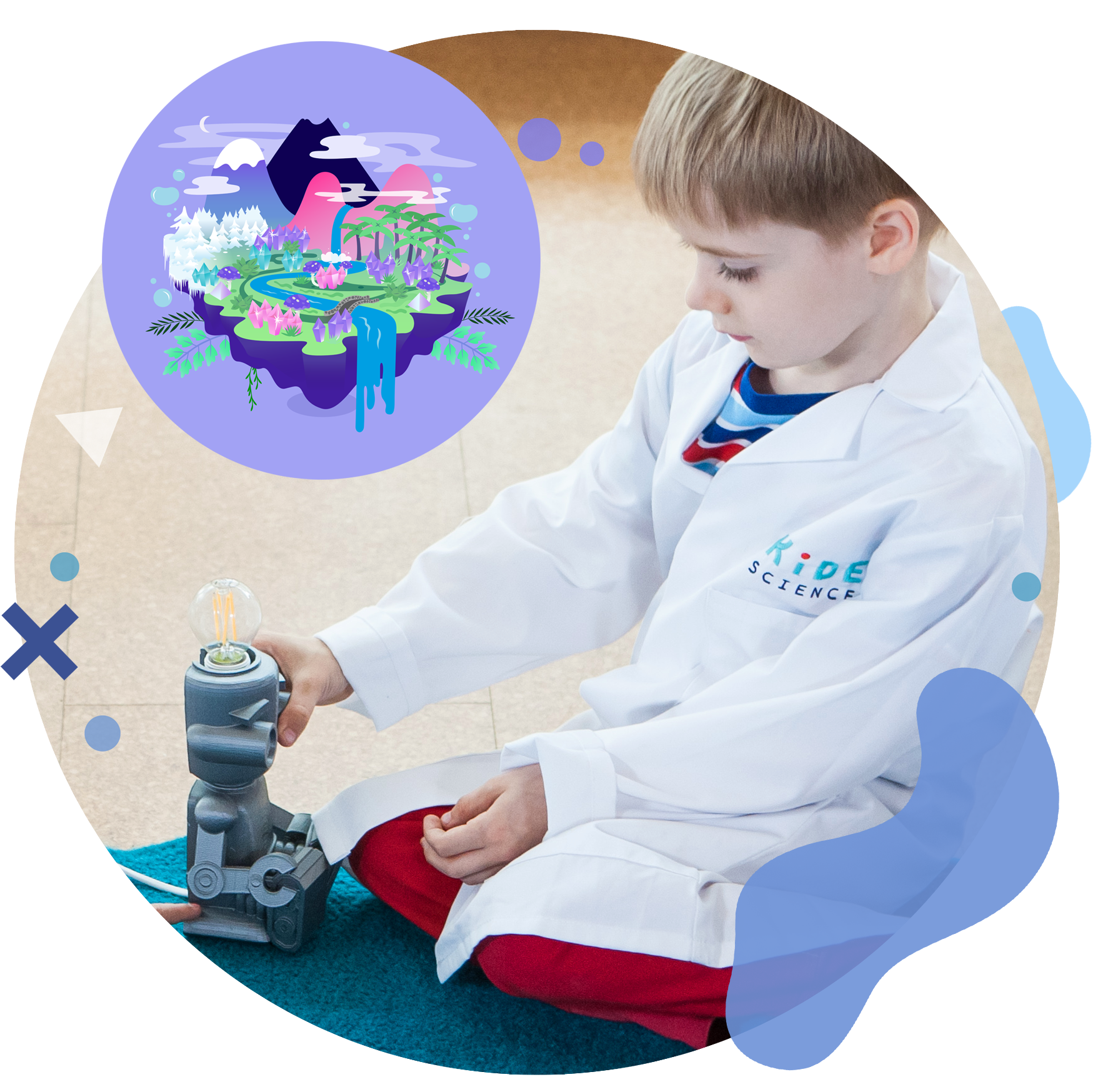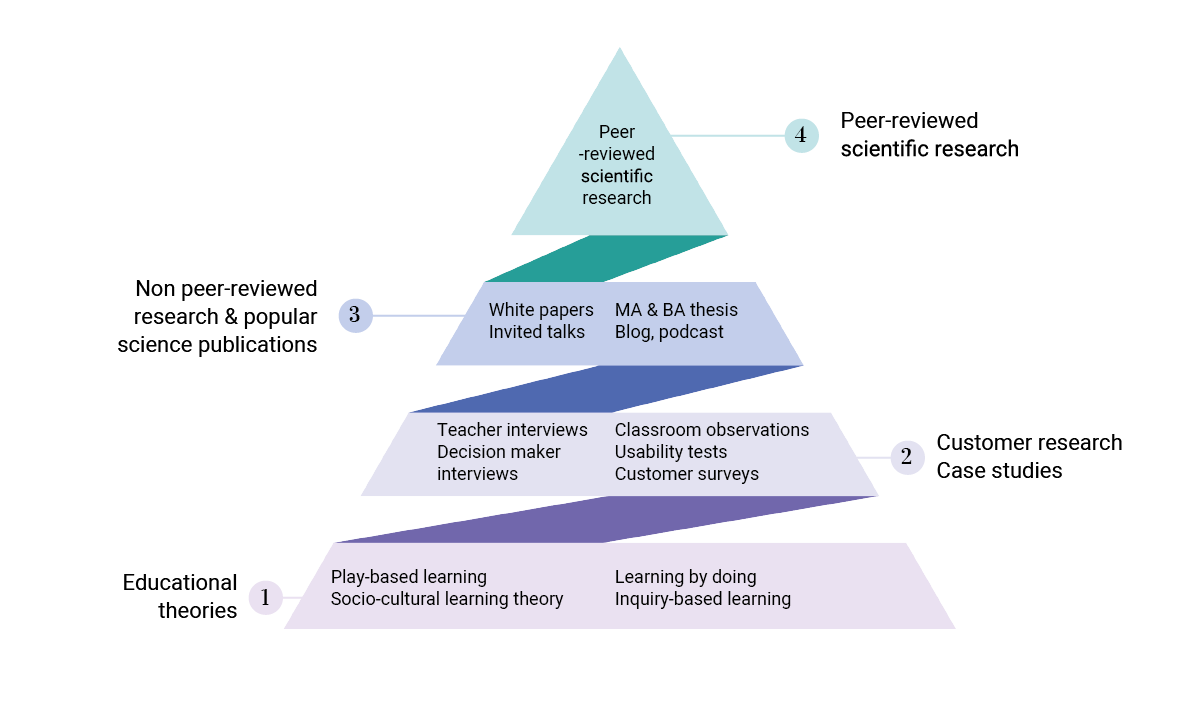In an ever-evolving world where skills requirements are constantly changing, it is essential to equip our children with the tools they will need in the future.
As we progress through 2023, The World Economic Forum (WEF) has identified a set of top skills crucial for success in the coming years. Interestingly, Playful Inquiry pedagogy, the approach Kide Science passionately believes in, aligns perfectly with these skills. (Can you hear our celebratory shouts of 'woohoo'?)
Let us tell you how.
-
Creative Thinking:
Playful Inquiry embraces creative thinking at its core. By encouraging young learners to imagine, explore, and experiment, this pedagogy stimulates their creativity. Through our story world (called Supraland,) our hands-on activities, and our open-ended problems, children are empowered to think outside the box, find unique solutions, and embrace their imaginative capabilities. In Supraland there are no wrong solutions! -
Analytical Thinking:
Analytical thinking, another essential skill for the future, finds a natural home within Playful Inquiry. This pedagogy encourages children to observe, question, and analyze the world around them. By engaging in activities that require critical thinking and logical reasoning, children develop a strong foundation in analytical thinking. Playful Inquiry allows them to break down complex problems, identify patterns, and make informed decisions based on evidence—a skill set crucial in an increasingly data-driven world. -
Technological Literacy:
As technology becomes an integral part of our lives, technological literacy emerges as a vital skill. Whilst our pedagogical model does not rely on using technological hardware - in fact, we're proud to say that our lessons are screen free - Playful Inquiry still develops fundamental multiliteracy skills, including technological literacy.
Children are encouraged to report their learning using different methods, and we develop vital coding skills in several of our lessons. In a playful way, children are able to develop a comfortable and confident relationship with technological literacy, ensuring that they are equipped to navigate the digital landscape of the future. -
Curiosity and Lifelong Learning:
Curiosity is the fuel that drives lifelong learning. Playful Inquiry creates an environment that nurtures and encourages curiosity in young learners. By embracing a play-based approach, children are motivated to ask questions, seek answers, and explore new ideas. Our lessons celebrate the joy of learning, instilling a love for discovery that extends beyond the classroom walls. -
Resilience, Flexibility, and Agility:
The future demands individuals who can adapt and thrive in an ever-changing landscape. Playful Inquiry promotes resilience, flexibility, and agility with its dynamic and adaptive nature. Every single Playful Inquiry lesson sparks a new adventure, a new problem to solve, and new possibilities. Plus, by engaging in hands-on experiences, children learn to overcome challenges, embrace mistakes as learning opportunities, and adapt their strategies when faced with obstacles. Playful Inquiry cultivates the resilience, flexibility, and agility required to navigate the complexities of the future with confidence.
And so, as we envision the skills required for the future, Playful Inquiry emerges as a powerful pedagogy that aligns seamlessly with the top 5 skills identified by the World Economic Forum. We here at Kide Science feel safe in the knowledge that we are equipping children with the tools they need to thrive in the world of tomorrow. So why not join us?
Read more about the World Economic Forum's Future Skills list here.png)


